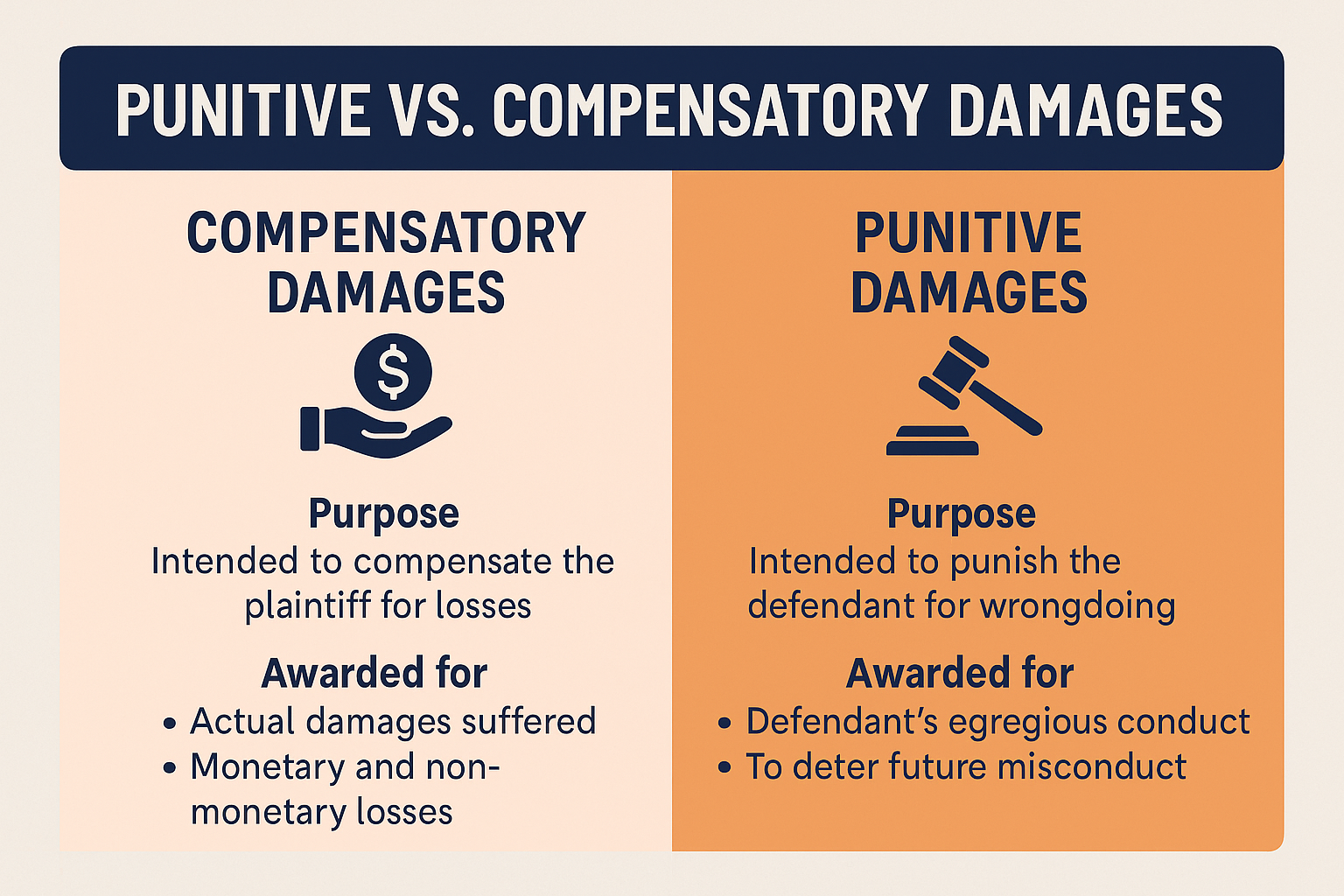Can I Recover Punitive Damages in a Car Accident Case?

In a Baltimore personal injury or insurance denial case, understanding what types of damages are available is vital when assessing both available monetary compensation, and making important legal decisions. Two primary categories of damages in civil litigation are compensatory and punitive damages — and they serve very different purposes under Maryland law. In an extraordinary case, you may be able to recover damages beyond those awarded for your economic [lost wages, medical bills etc.] and non-economic [pain and suffering, loss of enjoyment of life etc]. But the facts must be truly extraordinary. Punitive damages are not available, for example, in the typical personal injury or Baltimore car accident case.
Baltimore Personal Injury Law 101: Understanding the Difference Between Compensatory and Punitive Damages
Punitive damages, which have been likened to a civil fine, are designed to punish a defendant for egregious conduct. In an extreme Baltimore automobile accident case, punitive damages may be recoverable where the defendant acted with an evil motive, ill will, or an intent to injure or defraud, rather than just garden variety negligence. Compensatory damages, on the other hand, are routinely and regularly awarded after a Baltimore motor vehicle accident.
Compensatory Damages: Designed to Make the Plaintiff Whole
Compensatory damages are exactly what they sound like — they are meant to compensate the injured party for actual losses suffered. These damages are rooted in the idea of justice through restoration. They aim to return the plaintiff, as much as money can, to the position they were in before the injury or loss.
As noted above compensatory damages typically fall into two subcategories:
- Economic damages, like medical bills, lost wages, and property damage.
- Non-economic damages, such as pain and suffering, emotional distress, loss of enjoyment of life, and disfigurement.
These damages are calculated based on evidence. Medical records, pay stubs, expert testimony — all are used to establish the plaintiff’s actual loss.

Punitive Damages: Intended to Punish and Deter
Punitive damages, by contrast, are not about restoring the plaintiff — they are about punishing the defendant. In Baltimore, punitive damages are awarded only in rare and extreme cases, and only when the defendant’s conduct rises to the level of actual malice — intentional wrongdoing with evil motive or intent to harm.
Examples might include:
- A corporation hiding known dangers from consumers.
- A drunk driver with multiple prior convictions causing a catastrophic crash.
Maryland courts impose a high standard for punitive damages. They require clear and convincing evidence of actual malice. Unlike compensatory damages, punitive damages are not tied directly to a measurable loss — they are tied to the reprehensibility of the defendant’s conduct.
Why the Distinction Matters
Understanding the difference between these two categories is crucial in litigation strategy. Compensatory damages are most certainly always on the table when the plaintiff has been harmed. Punitive damages, however, require a different evidentiary approach, including careful pleading and often a separate phase of trial. At the end of the day, compensatory damages are about fairness to the injured — while punitive damages are about sending a message to prevent future misconduct. As attorney Eric T. Kirk will tell you, punitive damages have been awarded in a variety of other types of cases: assault, battery, fraud, false imprisonment, defamation, invasion of privacy, and outrage, among others. What sets these types of cases apart is the presence of intentional malicious misconduct. This is the type of behavior not present in the routine, run of the mill car accident case. The jury can be instructed to consider the financial resources of the defendant in making an award. While not common, an experienced personal injury lawyer will be able to advise you if you have the type of claim where punitive damages may enter into the discussion.



